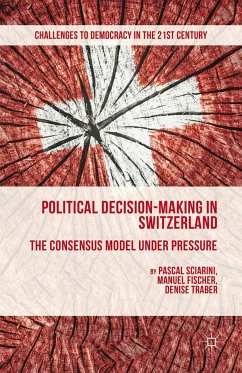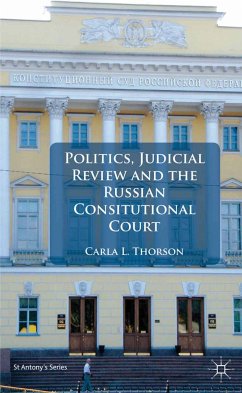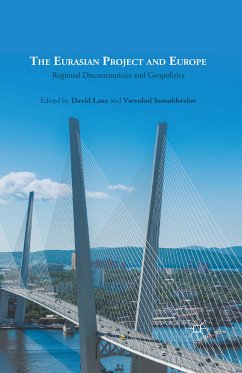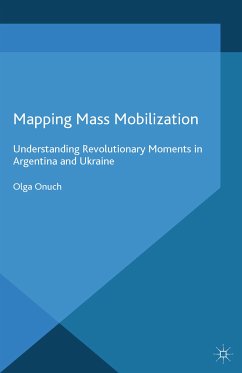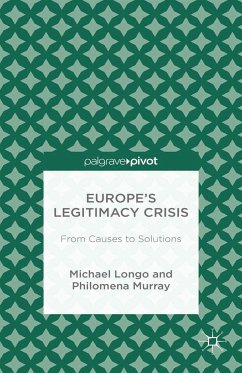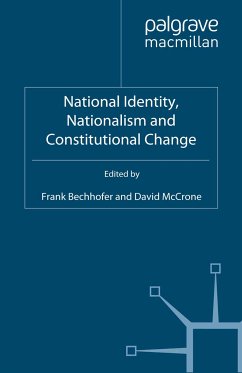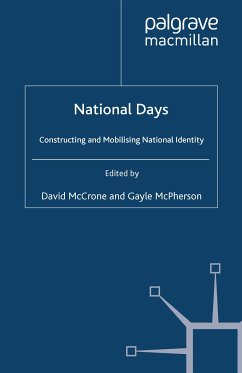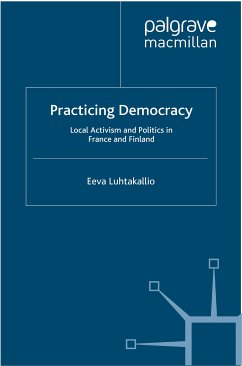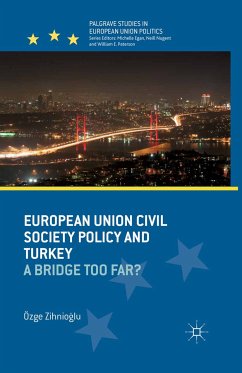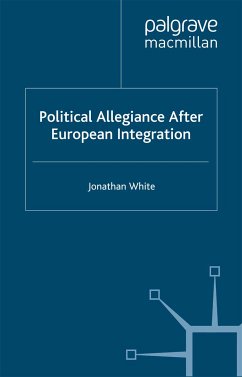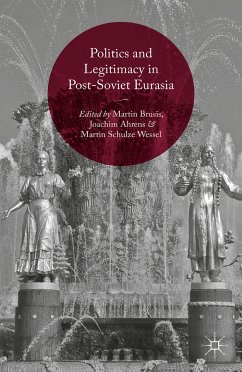
Politics and Legitimacy in Post-Soviet Eurasia (eBook, PDF)

PAYBACK Punkte
20 °P sammeln!






Political legitimacy has become a scarce resource in Russia and other post-Soviet states. Their capacity to deliver prosperity has suffered from economic crisis, war in Ukraine and confrontation with the West. Will nationalism and repression enable political regimes to survive? This book studies the politics of legitimation in Post-Soviet Eurasia.
Dieser Download kann aus rechtlichen Gründen nur mit Rechnungsadresse in A, B, BG, CY, CZ, D, DK, EW, E, FIN, F, GR, HR, H, IRL, I, LT, L, LR, M, NL, PL, P, R, S, SLO, SK ausgeliefert werden.
Joachim Ahrens, Professor of International Economics, Private University of Applied Sciences, Göttingen, Germany Martin Brusis, Managing Director of the project network 'Institutions and Institutional Change in Postsocialism', University of Munich, Germany Philipp Bürger, Historian and PhD candidate, University of Munich, Institute of Historiography, Germany Fabian Burkhardt, PhD student in political science, Graduate School of East and Southeast European Studies, University of Munich, Germany Adele Del Sordi, Post-Doctoral Researcher in Political Science, University of Amsterdam, The Netherlands Julia Grauvogel, Research Fellow, GIGA German Institute for Global and Area Studies, Hamburg, Germany Herman W. Hoen, Professor of International Political Economy, University of Groningen, The Netherlands Leslie Holmes, Professor Emeritus of Political Science, University of Melbourne, Australia Martin Schulze Wessel, Professor for the History of East and Southeast Europe, University of Munich, Germany Martin C. Spechler, Professor of Economics at Indiana University, USA Alfred Sproede, Professor of Slavonic and Baltic Literatures, University of Münster, Germany Christian Timm, PhD student of political science and researcher, Private University of Applied Sciences in Göttingen, Germany Alexei Trochev, Associate Professor for Political Science, Nazarbayev University, Astana, Kazakhstan Christian von Soest, Senior Research Fellow, GIGA German Institute for Global and Area Studies, Hamburg, Germany Oleksandr Zabirko, PhD candidate in East European cultural studies, University of Münster, Germany
Produktdetails
- Verlag: Palgrave Macmillan UK
- Seitenzahl: 251
- Erscheinungstermin: 26. Januar 2016
- Englisch
- ISBN-13: 9781137489449
- Artikelnr.: 44170038
"It is quite rare to find an academic publication of the same analytical depth and theoretical insight as Brusis, Ahrens, and Wessel's edited volume. The book presents a great selection of theoretical and empirical contributions focusing on a variety of issues in the former Soviet republics." (Aijan Sharshenova, Journal of Soviet and Post-Soviet Politics and Society, Vol. 3 (1), 2017)
"The volume consists of 10 chapters focusing on different geographical areas of post-Soviet Eurasia (PSE) that range substantively from the evaluation of party systems, political economy to national discourses, patriotic education, court systems, literature and memory politics, ... the book will be of a great interest for postgraduate students and
"The volume consists of 10 chapters focusing on different geographical areas of post-Soviet Eurasia (PSE) that range substantively from the evaluation of party systems, political economy to national discourses, patriotic education, court systems, literature and memory politics, ... the book will be of a great interest for postgraduate students and
Mehr anzeigen
scholars in a variety of fields and will hopefully serve as a good basis for further detailed and comparative studies on legitimacy in democratic and non-democratic states." ( Diana T. Kudaibergenova, Democratization, Vol. 25 (2), September, 2016)
"This edited volume of ten articles provides an in-depth look at various facets of the concept of institutional legitimacy, as it pertains to the states of post-Soviet Eurasia. The book's interdisciplinary nature provides a wide scope in a variety of case studies, showcasing the different levels of interaction within the Eurasian regimes. ... It is an important resource for the study of legitimacy, especially as many of the regimesunder study currently find themselves in crisis." (Mark Teramae, Europe-Asia Studies, Vol. 68 (9), 2016)
"This edited volume of ten articles provides an in-depth look at various facets of the concept of institutional legitimacy, as it pertains to the states of post-Soviet Eurasia. The book's interdisciplinary nature provides a wide scope in a variety of case studies, showcasing the different levels of interaction within the Eurasian regimes. ... It is an important resource for the study of legitimacy, especially as many of the regimesunder study currently find themselves in crisis." (Mark Teramae, Europe-Asia Studies, Vol. 68 (9), 2016)
Schließen
Für dieses Produkt wurde noch keine Bewertung abgegeben. Wir würden uns sehr freuen, wenn du die erste Bewertung schreibst!
Eine Bewertung schreiben
Eine Bewertung schreiben
Andere Kunden interessierten sich für


